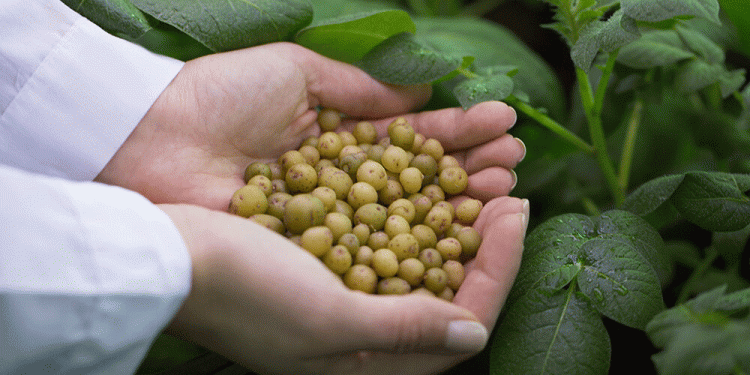Potato breeding has long been a challenge for farmers, as developing new cultivars that meet the demands for fast growth, disease resistance, and excellent storage quality requires overcoming significant genetic obstacles. One of the key challenges in potato breeding is self-incompatibility, a genetic trait that prevents diploid potatoes from self-pollinating. This has made it difficult to breed new varieties efficiently, slowing down the process of improving potatoes for agronomy and culinary purposes. However, recent advancements by the Michigan State University (MSU) Potato Breeding and Genetics Program have provided a major breakthrough in this area, opening the door to new breeding possibilities.
David Douches, the director of the MSU Potato Breeding and Genetics Program, has long sought a solution to the self-incompatibility problem, which has been a bottleneck in potato breeding. “We breed for fast, plentiful growth, disease resistance, good storage, as well as cooking texture and flavor profile. But diploid potatoes are usually self-incompatible, making it difficult to breed diploid cultivars,” Douches explained. Traditionally, this meant that breeders had to cross-pollinate different plants to create new potato varieties, a process that was time-consuming and limited the potential for rapid genetic advancement.
Now, thanks to a recent development in potato genetics, the MSU team has successfully overcome this barrier. Their work has resulted in the granting of US Patent #12,065,657 titled “Overcoming Self-Incompatibility in Diploid Plants for Breeding and Production of Hybrids,” which provides a method for genetically modifying potatoes to reduce or eliminate self-incompatibility. This breakthrough is not only significant for the potato industry but also demonstrates the growing role of biotechnology in advancing agricultural breeding techniques.
“This patent is a key milestone in our diploid potato breeding approach that will ensure improved varieties for the next generation,” Douches remarked. The new technology essentially gives potatoes the ability to self-pollinate, similar to tomatoes, which will dramatically shorten the breeding cycle and allow for faster development of new cultivars. This innovation holds great promise for potato farmers and the agricultural industry as a whole, as it could lead to potatoes with enhanced qualities such as better disease resistance, improved storage capabilities, and superior cooking textures—all traits that are highly valued in both the agricultural and food industries.
Felix Enciso, a key contributor to the project during his PhD program at MSU, emphasized the importance of this discovery. “It’s a big advance for plant breeding because it gives potatoes the ability to self-pollinate, like tomatoes can, which will shorten the generation of new cultivars. This shows the importance of biotechnology in supporting new breeding strategies in potatoes and other crops.”
The patent represents just one chapter in the ongoing story of potato genetics, but it marks a significant step forward. By overcoming the self-incompatibility issue, the MSU team has unlocked a new approach to accelerating potato breeding, which could have broad implications not just for potatoes, but for other crops as well. The ability to rapidly generate new cultivars with desired traits can improve food security, crop yields, and the overall efficiency of farming operations.
The recent patent awarded to the MSU Potato Breeding and Genetics Program marks a pivotal moment in the future of potato breeding. By overcoming the challenge of self-incompatibility in diploid potatoes, this breakthrough accelerates the breeding process, enabling the development of superior potato varieties with desirable traits such as better disease resistance and improved cooking qualities. As biotechnology continues to advance, this innovation will play a crucial role in enhancing the sustainability and productivity of potato farming worldwide.







